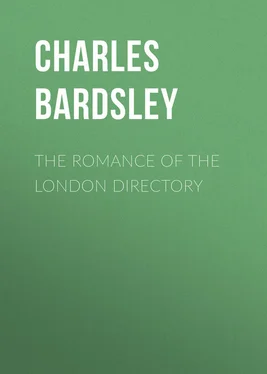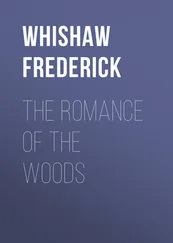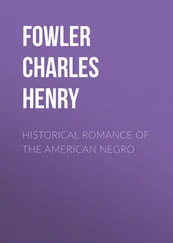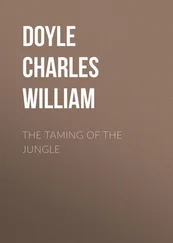Charles Bardsley - The Romance of the London Directory
Здесь есть возможность читать онлайн «Charles Bardsley - The Romance of the London Directory» — ознакомительный отрывок электронной книги совершенно бесплатно, а после прочтения отрывка купить полную версию. В некоторых случаях можно слушать аудио, скачать через торрент в формате fb2 и присутствует краткое содержание. Жанр: foreign_antique, foreign_prose, на английском языке. Описание произведения, (предисловие) а так же отзывы посетителей доступны на портале библиотеки ЛибКат.
- Название:The Romance of the London Directory
- Автор:
- Жанр:
- Год:неизвестен
- ISBN:нет данных
- Рейтинг книги:5 / 5. Голосов: 1
-
Избранное:Добавить в избранное
- Отзывы:
-
Ваша оценка:
- 100
- 1
- 2
- 3
- 4
- 5
The Romance of the London Directory: краткое содержание, описание и аннотация
Предлагаем к чтению аннотацию, описание, краткое содержание или предисловие (зависит от того, что написал сам автор книги «The Romance of the London Directory»). Если вы не нашли необходимую информацию о книге — напишите в комментариях, мы постараемся отыскать её.
The Romance of the London Directory — читать онлайн ознакомительный отрывок
Ниже представлен текст книги, разбитый по страницам. Система сохранения места последней прочитанной страницы, позволяет с удобством читать онлайн бесплатно книгу «The Romance of the London Directory», без необходимости каждый раз заново искать на чём Вы остановились. Поставьте закладку, и сможете в любой момент перейти на страницу, на которой закончили чтение.
Интервал:
Закладка:
“Hope your honour does not intend to quit the ‘Blue Boar .’ Sorry anything has happened.”
Mr. H. (to himself): “He has heard it all.”
Land. : “Your honour has had some mortification, to be sure, as a man may say. You have brought your pigs to a fine market.”
Mr. H. : “Pigs!”
Land. : “What then? Take old Pry’s advice, and never mind it. Don’t scorch your crackling for ’em, sir.”
Mr. H. : “Scorch my crackling! A queer phrase; but I suppose he don’t mean to affront me.”
Land. : “What is done can’t be undone; you can’t make a silken purse out of a sow’s ear.”
Mr. H. : “As you say, landlord, thinking of a thing does but augment it.”
Land. : “Does but hogment it, indeed, sir.”
Mr. H. : “ Hogment it! I said augment it.”
Land. : “Ah, sir, ’tis not everybody has such gift of fine phrases as your honour, that can lard his discourse.”
Mr. H. : “Lard!”
Land. : “Suppose they do smoke you – ”
Mr. H. : “Smoke me!”
Land. : “Anon, anon.”
Mr. H. : “Oh, I wish I were anonymous!”
It is curious to notice that many objectionable names still exist, simply because the words themselves have become obsolete, and the meaning forgotten. We will leave them in their obscurity.
CHAPTER III.
IMMIGRATION AND EMIGRATION
I said in my last chapter that nearly half of the names in the London Directory are of local origin, and I proved my statement by an appeal to certain figures. We have not all the brand of Cain on our brow, but certainly man has ever been “a fugitive and a vagabond in the earth.” History, sacred and profane, teems with the records of the flights of nations from one land to another. From the days of the Israelites’ escape from Egypt to the flight of the Huguenots from France, there have been emigrations which have been the direct results of persecution. From the year that saw Babel erected and the language confounded, the races of mankind have struck out a path for themselves in one direction or another of the earth’s vast continent. The curious feature is this, – It is to the dictionary we must go to discover whence each several horde set forth. The language of every nation clearly tells where lies the cradle of its birth.
But emigration and immigration lie not alone with nationalities. The world has not always been a vagabond en masse . From the day that Jacob started for the East to find his uncle, from the morn that saw Ruth clinging to Naomi, while she said, “Whither thou goest I will go, and where thou lodgest I will lodge,” there has ever been going on a wondrous silent efflux or influx of individual wanderers. Just as the mother-bird at the proper time, with seeming stern but true maternal instinct, pushes out her fledgling brood to seek a home and sustenance for themselves, so it has ever been with man. To go forth and replenish the earth has been a Divine fiat which none could forego. And what the dictionary is to the nation, the directory is to the individual. In the name of each we know the land, the city, the hamlet, whence each set forward to battle with the world. At any rate, this is strictly true of all local surnames.
In the course of the last six hundred years there has not been a single village or town in England that has not found its representative in London. “All roads lead to the capital,” says an old proverb. How true this is, the London Directory shows; for at this moment it would be hard to mention a place, big or small, from John o’ Groats to Land’s End, – the Dan and Beersheba of England, – whose name is not found therein as the title of some individual whose ancestor, long generations ago, left his native home to settle in what was, even then, the big city. I was struck the other day by seeing two shops adjacent, the shopkeepers’ names on the doors being “Dearnally” and “Dennerley.” Dearnally and Dennerley! What a curious circumstance! My mind went back six centuries, and I wove a little story. Six hundred years ago, two brothers, or schoolfellows, or playmates, leave the little secluded hamlet of Dearnley. 5 5 Dearn means secluded. Chaucer speaks of “derne love,” i. e. hidden, secret love.
One is John, the other William. John goes to Bristol. “Whence come you?” say his Bristol associates. “From Dearnley,” he replies. Henceforward he is John o’ Dearnley, by-and-by to become simple John Dearnley. “Whence come you?” says a Norwich artisan to William, who has turned his steps eastwards. “From Dearnley: I wonder shall I see it again,” responds William, sadly, who is already home-sick, – for homes were homes then as well as now. Henceforth he is William o’ Dearnley, or Will Dearnley. Each marries, has children, dies. His descendants, bearing his name, are scattered hither and thither over the broad land, like leaves before the cold keen blast of an October wind. Corruptions of the name of course ensue. The descendants of John are “Dearnally”; of William “Dennerley.” Centuries after this, in the year of grace 1877, one of John’s generation, who has found his way to a big city, sees a new house, takes it, is a grocer, and inscribes his name Dearnally above. In the meantime another stranger is eyeing a contiguous shop in the same block of buildings. “Fine opening for a butcher here,” says he to himself: “I will take these premises.” He does so. Up goes his name. What is it? Dennerley! Thus, after long years, nay, centuries, two descendants of the two playfellows, probably brothers, are to be seen dwelling together, each ignorant that when he wishes his neighbour good morning, he is rejoining links in a chain snapped, oh, so long ago! The invisible destinies of God have recovered the lost associations of twenty generations! Said I not, the London Directory is a romance?
I have selected this story for a purpose. It explains the origin of every local surname in existence. A man, in a new community to which he had joined himself, might go by the name of his occupation, as “Tinker,” or father’s Christian name, as “Peterson,” or by a nickname from his social habits, as “Good-fellow”; but in five cases out of ten he bore the title of the spot whence he issued forth. Take a few instances of the mode and manner in which these local surnames were formed. All my illustrations shall be from the London Directory. For perspicuity’s sake I will separate them into classes.
( a ) Local names terminating in “ er ” and “ man .” “Churchman” would seem to bespeak the original possessor an Episcopalian. But there was no dissent in the twelfth or thirteenth century. It could give no individuality as such. It was a local name, implying that John or Peter Churchman dwelt by the church. Hence also “Churcher.” In the north, “Church” was pronounced “Kirk.” Therefore, in the north these two names are found as “Kirkman” and “Kirker,” – exactly as we find “Thacker” in Yorkshire to be “Thatcher” in Surrey. Of this same class are Crosser and Crossman, reminding us that there was a time in pre-Reformation days when every village had its cross, which was as much a landmark as it was an object of reverence. Bridger and Bridgman lived beside the wooden or stone structure that spanned the stream.
( b ) Some local names still preserve the affix or suffix corresponding to the French “del,” “de,” “du,” and “de la,” as Atwood, Atwater, and Atwell, once William at the wood, or at the water, or at the well. By is found in Bywater, and Bythesea. Sometimes the letter “n” got in for euphony’s sake, as in “Nash,” which is sprung from “atten-ash.” “Thomas atte-n-ash” thus became Thomas Nash. Hence Nolt for atte-n-holt ( i. e. wood), or Nalder for “Alder.” Townsend is from Town’s-end. Thus Peter at the Town’s-end becomes Peter Townsend, or Townshend. “Tash” is from “at the Ash”; and Thynne, a name belonging to one of our ennobled families, is said to be from one “John at the Inne.”
Читать дальшеИнтервал:
Закладка:
Похожие книги на «The Romance of the London Directory»
Представляем Вашему вниманию похожие книги на «The Romance of the London Directory» списком для выбора. Мы отобрали схожую по названию и смыслу литературу в надежде предоставить читателям больше вариантов отыскать новые, интересные, ещё непрочитанные произведения.
Обсуждение, отзывы о книге «The Romance of the London Directory» и просто собственные мнения читателей. Оставьте ваши комментарии, напишите, что Вы думаете о произведении, его смысле или главных героях. Укажите что конкретно понравилось, а что нет, и почему Вы так считаете.












